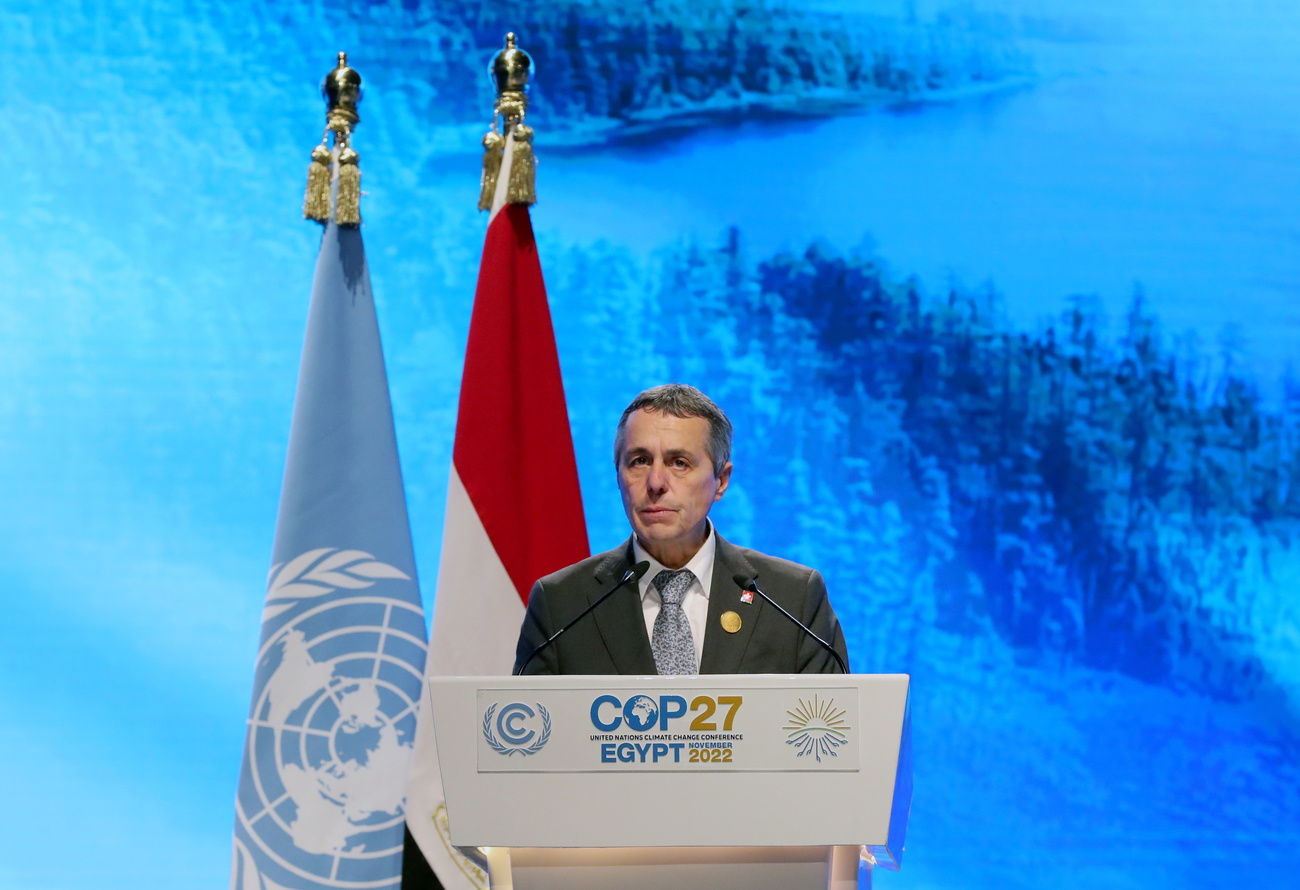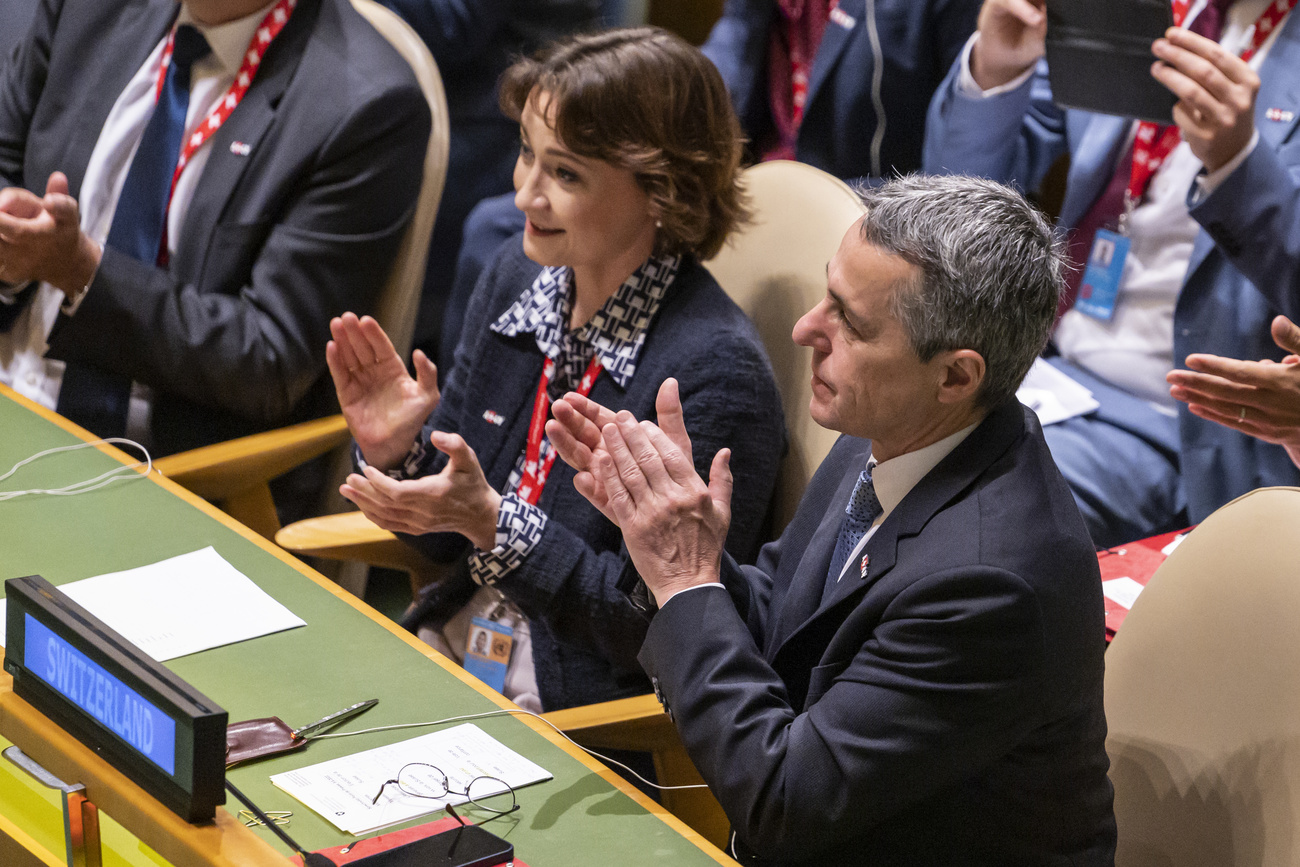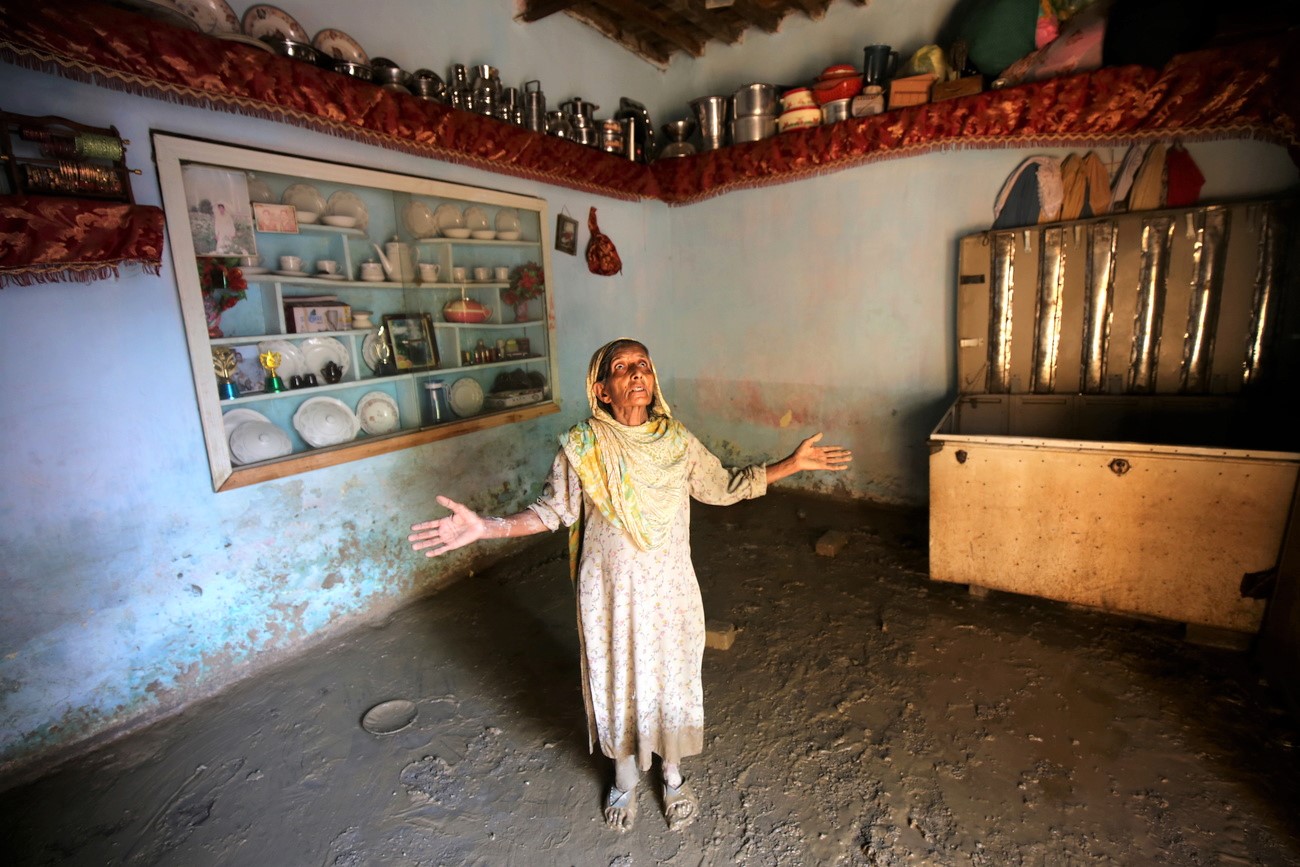
COP27: Switzerland stresses need to maintain climate targets

At the opening of the COP27 climate forum in Egypt, Swiss Foreign Minister Ignazio Cassis has stressed the need to maintain the 1.5°C target and the “special responsibility” of the large emitters. He also announced additional contributions from Switzerland.
“COP27 cannot be the conference where we lose sight of the 1.5°C objective. On the contrary: COP27 must reinforce this goal!” said Cassis, who also holds the rotating Swiss presidency this year, at the opening ceremony of the UN conference in Sharm el-Sheikh.
He added that the target could not be met without greater efforts by the G20 countries – which account for 80% of global emissions. The poorest and most vulnerable, who contribute the least to emissions, are the ones who will suffer the most, he said on Monday. “We cannot accept these consequences.”
Cassis noted that “climate change has left a particularly devastating legacy this year” in reference to the floods in Pakistan as well as heatwaves and droughts in several parts of the world. He added that Switzerland would therefore continue to maintain its climate targets, despite the current energy crisis. Switzerland is committed to halving its greenhouse gas emissions by 2030 and to achieving climate neutrality by 2050 at the latest.
“We can limit climate change if we want to,” he insisted, adding that Switzerland was ready. During its term as a non-permanent member of the UN Security Council, Switzerland would give greater consideration to the risks of climate change on security and peace, he said.

More
Switzerland confirms UN Security Council priorities
Cassis recalled that at COP26 in Glasgow, countries for the first time committed themselves to eliminating and abolishing subsidies for fossil fuels. “This COP27 must ask each country to present a concrete timetable for divesting from fossil fuels,” he said.
More adaptation efforts were also needed at the global level. The solutions proposed must be efficient, that is to say affordable, as resources are limited, Cassis said. He added that additional sources of funding must be found, for example on the basis of the polluter-pays principle.
Additional contributions
Cassis said Switzerland was committed to ensuring that the next climate financing target – for the period after 2025 – “is commensurate with current needs and addresses all financial flows”. Switzerland intended to contribute its “fair share” to the $100 billion (CHF99 billion) target and would contribute to the target of doubling adaptation funding by 2025.
In order to meet this target, the foreign ministry said in a statementExternal link on Monday that over the next four years Switzerland would, subject to parliamentary approval, contribute CHF155.4 million ($157 million) to the Global Environment Facility, CHF11.8 million to the Special Climate Change Fund and CHF16 million to the Least Developed Countries Fund.
Switzerland would also contribute an additional CHF8 million to the World Bank’s Disaster Risk Insurance and Financing programme to help strengthen the resilience of its partner states, as well as CHF4 million to the CREWS initiative, which provides a funding mechanism to address the needs of least developed countries (LDCs) and small island developing state (SIDS). This sum is in addition to Switzerland’s current CHF 9 million contribution for developing early warning systems for all.

More
COP27 and the climate crisis: will rich countries pay?

In compliance with the JTI standards
More: SWI swissinfo.ch certified by the Journalism Trust Initiative




























You can find an overview of ongoing debates with our journalists here . Please join us!
If you want to start a conversation about a topic raised in this article or want to report factual errors, email us at english@swissinfo.ch.